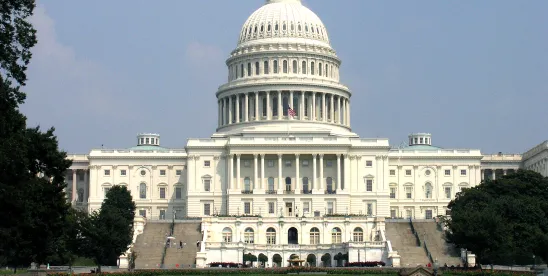On April 18, 2024, Representative Betty McCollum (D-MN) announced that she and Senator Dick Durbin (D-IL) introduced the Forever Chemical Regulation and Accountability Act (H.R. 8074, S. 4187), “bicameral legislation to address the excessive use of per- and polyfluoroalkyl substances (PFAS) across the nation’s supply chain, which has led to the harmful compounds contaminating water sources, as well as surrounding environments and communities.” According to McCollum’s press release, the bill would:
- Initiate a National Academies of Sciences, Engineering, and Medicine (NASEM) study to review the persistence, bioaccumulation, and human health risks of PFAS. NASEM would also identify current PFAS uses and provide guidance on classification of essential or non-essential uses that will be used by the U.S. Environmental Protection Agency (EPA) to require those designated “non-essential” be phased out;
- Require all PFAS manufacturers and users to file reports with EPA to disclose certain information relating to PFAS and require manufacturers and users to submit a phaseout schedule of their products to be completed within ten years;
- Direct EPA to facilitate phasing out non-essential PFAS production, consumption, and possession and to prohibit manufacturers and commercial users from releasing any PFAS into the environment within ten years;
- Establish deadlines for manufacturers to remove PFAS from certain consumer goods such as rugs, furniture, and child products;
- Reinforce that, to the maximum extent possible, PFAS should be eliminated from products or replaced by substitutes that reduce risk to human health and the environment. The bill also would direct federal agencies to maximize resources to achieve this goal;
- Establish regional PFAS rapid response hubs to advance PFAS replacement and remediation;
- Require EPA to collect fees to administer the reporting and petition processes;
- Prevent large corporations from exploiting bankruptcy procedures to avoid persistent, bioaccumulative, and toxic chemicals (PBT), including PFAS, claims, ensuring that individuals who have been harmed by such chemicals can have their day in court; and
- Update the Comprehensive Environmental Response, Compensation, and Liability Act (CERCLA) to toll state statutes of limitations and statutes of repose for newly designated hazardous substances, such as PFAS, until the later of the date on which it was designated as a hazardous substance or when the plaintiff knew or reasonably should have known their injury was caused by the substance.




 />i
/>i

